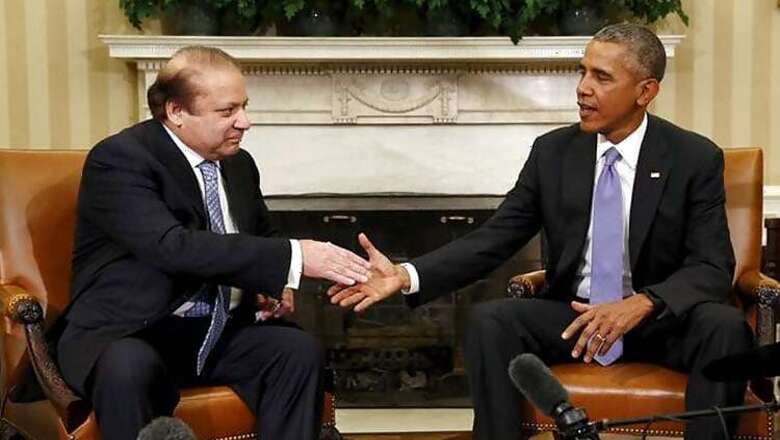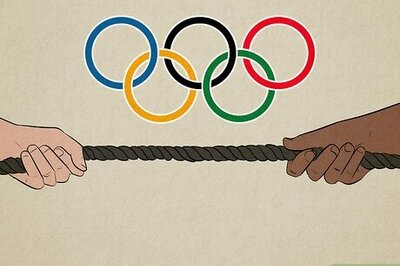
views
Washington: The US has "categorically ruled out" any kind of negotiations with Pakistan on India-type civil nuclear deal, terming the reports in American media "completely false".
"Let me state categorically, we have not entered into negotiations on 123 Agreement with Pakistan nor are we seeking an exception for Pakistan within the nuclear supplier group in order to facilitate civil nuclear exports," a senior Administration official said after US President Barack Obama met Pakistani Prime Minister Nawaz Sharif on Thursday.
The official, speaking on condition of anonymity, was responding to questions on reports appearing in the American media that the US was considering a civil nuclear deal with Pakistan.
"There is no such thing as a nuclear deal which has been reported in the media is some short of a civilian nuclear package alleged to be something like that the US concluded with India 10 years ago.
"Let me just assure you categorically that the press allegations of a 123 agreement with Pakistan are completely false," the official added.
Pakistan has made it clear its interest in civilian nuclear cooperation and it is called socio-economic imperative because of energy shortfalls, the official noted.
Leaders of the two countries, however, did discuss on Pakistan's nuclear safety and security which is an ongoing discussion.
The 123 Agreement signed between the US and India is known as Indo-US nuclear deal. The framework for this agreement was done in 2005.
"We have a long standing dialogue with Pakistan about its nuclear program, and various developments in this program. We are particularly concerned and have expressed these concerns to Pakistan that there is requirement of all countries possessing nuclear weapon to ensure the safety, security of these weapons and do everything it can to promote strategic stability. So we will continue to engage in dialogues like this with Pakistan," the official said.
It is the understanding of the US that Pakistan is very well aware of the full range of potential threat to nuclear arsenal including from terrorist groups that operate on its soil. Other Pakistani military facilities have been attacked.
"So they are very well aware of the terrorist threats including to all aspects of their military installations and its our understanding that they have a dedicated security apparatus that understands the importance of nuclear security," the official said.
In a readout of the Obama-Sharif meeting, the White House said the President stressed the importance of avoiding any developments that might invite increased risk to nuclear safety, security, or strategic stability.
"The leaders pledged to continue their strong cooperation on nuclear security, including at the upcoming Nuclear Security Summit," the readout said.
According to a joint statement, Obama and Sharif discussed the continuing threat of nuclear terrorism. Obama welcomed Pakistan's constructive engagement with the Nuclear Security Summit process and its cooperation with the International Atomic Energy Agency and other international forums, it said.
The leaders noted Pakistan's efforts to improve its strategic trade controls and enhance its engagement with multilateral export control regimes, the joint statement said.
"Recognising the importance of bilateral engagement in the Security, Strategic Stability and Non-Proliferation Working Group, the two leaders noted that both sides will continue to stay engaged to further build on the ongoing discussions in the working group," the statement added.
"More generally, the US urges all Nuclear Weapons State including Pakistan to exercise restraint in nuclear weapon and missile and capabilities.
"In particular, we have discussed measures to strengthen safety and security for Pakistan and continue to hold regular discussions on Pakistan on these issues," the senior administration official added.


















Comments
0 comment